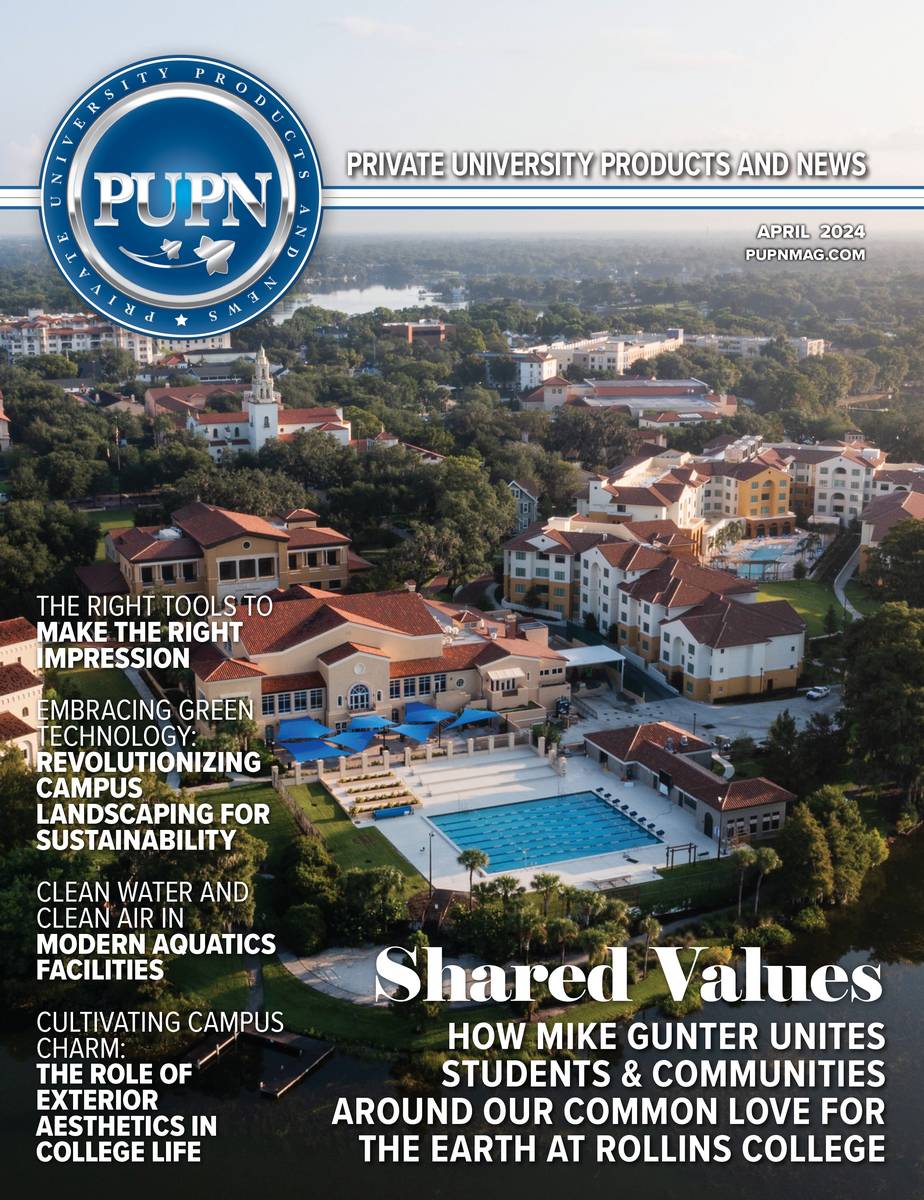Before he turned to academia, Ma worked on Wall Street, says Robert Greve, Associate Dean and Associate Professor of Information Technology at OCU. At the time Ma joined the faculty in 2008, OCU offered an MBA program in China, the first of its kind in that country. Hossein Shafa, Retired Professor of International Finance and Chair of Global Programs at OCU, notes that this program gave students experience in studying Chinese markets as well as learning how Chinese firms finance operations. OCU, naturally, wanted to hire people who had experience with both Chinese and U.S. markets. Ma, Shafa states, had just graduated and had experience working with top financial organizations, making him a prime candidate. Additionally, Shafa points out that Ma’s focus on socially responsible investing aligns well with OCU’s mission to “prepare all learners to create, lead, and serve.” Ron Shaw—retired Professor of Finance at OCU—adds that the committee was “very impressed from the first interview.”
Making Complex Topics Accessible
One of Ma’s many strengths lies in helping all students to learn the information in his classes. Student Erika Kiely, Assistant Vice President of Technical Services at American Fidelity International (Bermuda), Ltd., is currently earning a Leadership MBA degree at OCU. Kiely observes that Ma “meets students where they are” and commits to helping them change “irrational and erratic thinking to a systematic way.” The approaches that Ma uses to bring “intimidating concepts” to the students is “powerful,” she says. She, like other students, had been hesitant and fearful of course content—partly because she had not done well in a previous accounting course—and she is thankful that Ma supports his students in “breaking through the wall of fear.” Kiely states that she now feels completely comfortable not only discussing stocks and capital but also explaining these ideas to others.
Ma’s students uniformly report that he makes sure that everyone in class fully grasps the material through careful review and tailored instruction. Kathryn Cline, Investment Club Co-President and Accounting Major at OCU, observes that he both “knows how to reach students” and “understand their level”; he can “explain complicated ideas in a variety of ways,” and he can present the ideas “based on how individual students think.” She mentions that he will take time to make sure students go beyond memorization to truly understand the concepts. Similarly, Shaw remarks that Ma is “an excellent communicator” who can convey “complex topics in ways that are accessible to a variety of people, across abilities, across age groups, and across ethnicities.”
One reason Ma reaches his students so effectively is that he knows their goals and needs. For example, he has observed that the Introduction to Finance class has three distinct populations of students who need the class for different reasons. The General Business students need an overview and working knowledge of the material, and the Finance students need strong grounding in the math involved for future courses within the discipline. Finally, Entertainment Management students benefit from increased emphasis on the management portion of the course. To meet this variety of needs, Ma wrote a text for OCU students; this text provides interactive notes in which Excel examples are embedded, and the text offers video tutorials, as well.
Engaged Teaching Style
Not only does Ma make complex topics accessible to all of his students, but he also gets them involved in their learning. Greve notes that Ma is “one of the favorites among students and colleagues” who is “exceptional in the classroom”; he adds that Ma “genuinely cares about the students.” Steve Agee, Dean Emeritus of the Meinders School of Business at OCU, calls Ma a “superstar” among faculty members, and Shaw remarks that he is both a “gifted teacher” and “an exemplary human.”
Kiely says that Ma presents himself in such a way that students can connect with him; he makes sure to relate to students on a human level. Additionally, Cline mentions that Ma is very willing to help students, even outside of office hours and on evenings and weekends if needed; he is “always there for students.” He is quick in responding to emails, and he takes the time to respond in detail. She states that he encourages growth in his students, even those who are no longer in his classes. Ma confirms his open door policy, reiterating that students can call on him at any time.
Ma draws on an array of strategies in his effective approach to teaching. Cline has noticed that when students ask questions in class, Ma encourages other students to answer so that they learn from and with each other. Additionally, Greve mentions that he has learned from Ma to focus on delivering experiences rather than lectures. Shaw remarks that Ma’s rigorous courses “don’t come off as hard” because of these teaching strategies. He also notes that one way Ma gets students engaged in the material is that he points out why what he’s teaching is important. Because of Ma’s teaching style, Armstrong added finance to her degree plan; she adds that she really enjoys his classes and how he teaches.
Extracurricular Club and Research Sponsor
Ma serves as the faculty sponsor for the OCU student investment club. This innovative model is funded by active OCU alum and prominent donor Herman Meinders, who also funded 100% of the new Meinders School of Business building. For the investment club, Meinders loans an undergraduate and a graduate team $100,000 each to invest during the school year. The students then develop stock investment plans for the school year and buy the stocks for their portfolios. At the end of the academic year, the students cash out. After they repay Meinders the $200,000 he put in, the school of business keeps any profit remaining to fund scholarships. The club has operated since 2005 and has only lost money one year in its tenure. As Greve puts it, “Talk about real learning!”
Cline, one of the two current co-presidents, says that Ma encourages them to “find their strengths as leaders” and “learn how to help others learn.” Cline adds that, when offering guidance to the investment club, Ma emphasizes the idea that there is no perfect investment strategy. He explains outright that they will make mistakes, and they should learn from them. In fact, whenever a student asks a question or makes a mistake—in class or in the club—Ma’s approach is always that “this is a great opportunity for you to learn.” Ma will not tell the club what to do, but he will offer “tips and tricks” to guide their decision-making and help them figure out their strategies and plan of action. In the years that the student investment club has operated, it has generated “hundreds of thousands of dollars for scholarships,” Ma notes.
Aubrey Armstrong, Investment Club Co-President and Accounting and Finance major at OCU, mentions that Ma also sponsored the 2023 CFA Institute Research Challenge. According to their website, this “annual global competition … provides university students with hands-on mentoring and intensive training in financial analysis and professional ethics.” Armstrong states that the five-member team carefully researched a given stock, then developed a written report and PowerPoint presentation to make a stock pitch to a panel of judges. Armstrong appreciates the support and guidance that Ma provided the team throughout the process.
Guiding Students with Humility and Integrity
Kiely, who is based in Oklahoma and has been in the insurance industry for seventeen years, worked in various major areas within the company before deciding to pursue her MBA degree at Oklahoma City University three years ago. She says that every class has “added to her tool belt,” but she most appreciates two of the leadership skills she has learned from Dr. Ma: “humility and integrity.” When she joined the class, she knew about his credentials, but she did not expect that he would present himself in such a self-effacing, gentle, and authentic way.
Cline notes that, while Ma has extensive knowledge about his field, he is still humble, telling his students “I’m still learning.” Cline adds that Ma is interested in “growth of learning and growth of self” and that he has offered guidance on balancing school and life. One of the pieces of advice that has stuck with Cline is when Ma told her “Sometimes you don’t know what you should do [with your life], and that’s okay—seek every opportunity.” Cline appreciates the ways that Ma prepares students for their post-college lives; he is “realistic but not scary” in providing support, guidance, and encouragement.
Ma allows students to try multiple times to successfully complete each homework assignment. Homework problems are randomly generated for each attempt; he has noticed that most students try two or three times before successfully completing the work. This approach demonstrates Ma’s interest in having students truly learn the material. Similarly, he provides dozens of practice questions for exam prep, giving students multiple chances to achieve the learning goals.
Bloomberg Lab
Ma was instrumental in establishing OCU’s Bloomberg lab. According to Investopedia, “a Bloomberg terminal is a computer system that allows investors to access the Bloomberg data service, which provides real-time global financial data, news feeds, and messages. Investors can also use the Bloomberg terminal’s trading system to facilitate the placement of financial transactions, such as stock and options trades.” As Agee recalls, Ma came to him and asked for a Bloomberg terminal, so they went to see one at a local investment firm. After seeing it in action, they procured funding for one, then got another one donated. Bloomberg has a program in which institutions of higher education can lease three terminals and get nine free, so Agee went to donors to secure funding for a third terminal. As a result, OCU now has a Bloomberg lab with twelve terminals; all students in OCU’s business school are “highly encouraged to get Bloomberg certified,” according to Ma.
Ma’s work with the Bloomberg lab demonstrates a technical astuteness that Shaw noted; Shaw observes that Ma is good at using technology to get students active in his classrooms. Additionally, Greve states that teaching courses in the Bloomberg lab allows Ma to teach finance and investments in a hands-on learning environment.
Research Interests
In his PhD work, Ma focused on socially responsible investing, and one of his current projects draws on this work. One challenge he has identified for those who wish to pursue socially responsible investing is this: much of the information people would use to make decisions about such investments is proprietary, so investors don’t often have access to this type of information. Ma’s goal with his research in this area is to find publicly-
available information to make investment decisions based in goals of social responsibility, then to generate financially competitive results. His preliminary findings indicate that such a strategy can be successful, both in terms of identifying socially responsible companies and of generating competitive results; his findings will be published in a co-authored piece titled “Green Investing: Using Publicly Available Information.” To complete this research, Ma and his co-author will submit a request for funding next year from the OCU President’s office so that he can hire research assistants to hand-collect the needed information about the companies.
Recently, Ma has also been exploring payday anomalies. Previous work had been done on month-end investment anomalies. Ma remembers that out of nowhere, as he was teaching a graduate investment class, the idea popped up to investigate all the days of the month, not just month-end. After all, he says, “When you invest, you need to know how it works.” As he pursued this research, Ma found that monthly returns were concentrated on the 1st, 2nd, 16th, and 30th/ 31st days of each month. The data showing this payday anomaly in the market shows up on an aggregate level. Individual investors would find it hard to take advantage of such an anomaly, but this information would “work well for a fund manager,” Ma states. In fact, he says, the finding has become the theoretical basis for an investment strategy at quantpedia.com and aroused interest at alphaarchetect.com. He was recently interviewed by Bloomberg UK to further discuss the findings of the Payday Anomaly paper. The industry has taken note; Ma has been widely quoted in the business media, such as CNBC.com, Bloomberg, ABC News, BizWeek Germany and the Wealth Magazine.
Takeaways
Ma has been recognized for his strengths: in 2022, he was chosen to receive the university-wide Outstanding Faculty Award; the honor’s recipient gives the graduate commencement address each year. Additionally, he was given the Distinguished Achievement in the Innovation of Teaching and Learning Award in 2016 by OCU’s Center for Excellence in Teaching and Learning. Such awards, Greve points out, are ways that private colleges and universities can appreciate and acknowledge those like Ma who go above and beyond baseline expectations. Pointing to the strengths that Ma exemplifies, Shafa highlights the role of universities within a worldwide economy to instill in their students a global awareness of their own responsibilities. Also, Shaw reminds administrators to take care to have faculty members balance service commitments with their other work—faculty members like Ma who “perform well can get asked to do so many things.”
Ma’s research in socially responsible investing, his strong commitment to tangible student learning, and his willingness to take on additional responsibilities and seek out new opportunities all provide an inspiring example for those at other institutions of private higher education to follow.










